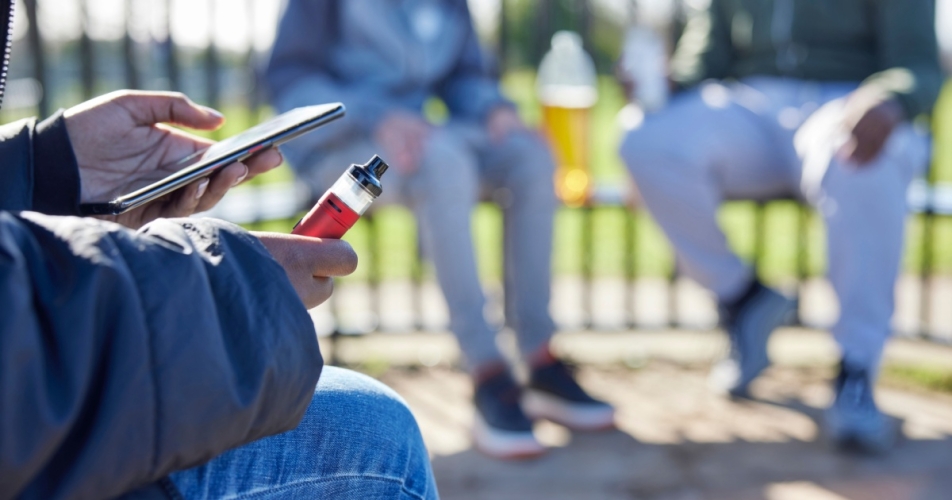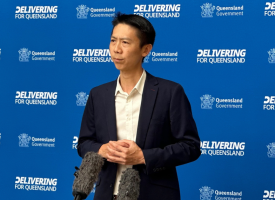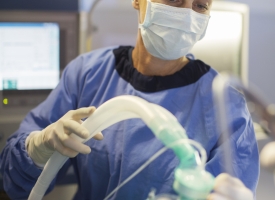New measures to enforce vape and tobacco regulations
AMA Queensland President Dr Nick Yim talks to ABC Radio Sunshine Coast Mornings presenter Sarah Howells about the state government's latest announcement to introduce 43 enforcement officers to ensure illegal vape and tobacco laws are enforced statewide.

Transcript: AMA Queensland President Dr Nick Yim, ABC Radio Sunshine Coast, Mornings with Sarah Howells, Monday 30 June 2025
Subject: New enforcements for vaping laws
SARAH HOWELLS: Tomorrow, would you believe it, also marks a full year since vapes were effectively banned in Australia. I mean, these days, the only way you can legally get one is through a pharmacy, and then only if you have a prescription from your doctor. But getting a vape illegally doesn't look that hard, to be honest. The past year has come with a run of complaints about vapes continuing to be sold in retail stores, sometimes quite openly, despite that that change in laws and some high-profile busts by Queensland health enforcers. Now the state government says it's stepping up its efforts to stub out vapes along with illicit tobacco. To do so, Health Minister Tim Nicholls says Queensland Health will employ 43 new officers to enforce those laws statewide.
Now, at this stage, it is not clear how the new officers will be spread across Queensland's 11 public health units or how many of them will be stationed on the Sunshine Coast. We do know, though, that Queensland is a very big state. Dr Nick Yim is a GP and the President of the Australian Medical Association Queensland. Nick, is adding 43 enforcement officers enough to put a lid on the illegal vape and tobacco trade?
DR NICK YIM: The increased investment into enforcement officers is a start. We know that people, as you alluded to, are still accessing illegal vapes. We continue to be concerned about the number of children and young adults accessing vapes. So, it's definitely a start. We know that Queensland is a very big state, but enforcement is a good strategy to reduce the number of illegal vapes circling in our community.
SARAH HOWELLS: So, how many complaints are you hearing about retailers illegally selling vapes or tobacco?
DR NICK YIM: As a GP, I don't directly receive the complaints of people selling illegal vapes, but what I do see is people, parents, young adults, and school teachers continue to touch base with me and say, ‘hey, Nick, such and such is still getting access to illegal vapes, what can we do about it?’ But at the same time, why they're seeing me is because they want to get help from a GP to try and remove the access, but also to stop them from using vapes, because vapes do have nicotine and are highly addictive.
SARAH HOWELLS: Why has it been so hard to crack down on this and why are people finding it so easy to still access?
DR NICK YIM: It is a complex issue. Initially, as you alluded to in the introduction, it was the introduction of federal laws but then came along support from the state government as well. At the same time, it comes down to education for those using vapes. Finally, one of the greatest challenges that we have is that there continues to be a lot of advertising on social media directly to young adults and children, which is one of the reasons why people are still using vapes.
SARAH HOWELLS: What do you wish people knew when it comes to education in this space?
DR NICK YIM: The biggest thing is, we know that vapes are highly addictive. Currently, they are being marketed with fruity flavours, pretty boxes. This is directly targeting young children, young adults and people who never previously smoked cigarettes. We know from data that these people are transitioning to cigarette smoking. We also know the harms of cigarette smoking, such as lung disease, lung cancers and unfortunately, the psychological aspect of anxiety when they are looking for that additional nicotine. This is something where, ideally, in a long-term world from an education perspective, education needs to start from a young age. If we can prevent [young people] from being introduced to vapes, it means that we're less likely to see the next generation addicted to vapes.
SARAH HOWELLS: If we can stop that at the source, that's one of the things, isn't it? Not having access to those vapes. There has been some pretty big enforcement actions this year, at least in terms of the headlines that they generate. Do you know if that's making much of a difference?
DR NICK YIM: It's really hard to say. It's really early stages, but I know anecdotally, I am getting less messages and emails from my local community saying that people are using vapes at schools. It is still an issue, but probably not as frequent as, say, a couple of years ago.
SARAH HOWELLS: Well, that is good to hear. Dr Nick Yim there, a GP and the President of the Australian Medical Association Queensland, reflecting on those 43 new officers that Queensland Health will be employing to enforce those vapes and illicit tobacco laws.



